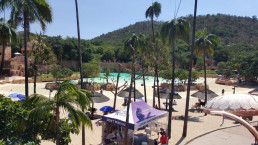At uvex, we are all striving towards our common goal of protecting people, whether in their free time or at work. Real people are behind every pair of safety spectacles, every pair of safety footwear and every pair of earplugs. These are people who have worked with commitment and passion day in, day out, to make uvex what it is today – and that has been the case for more than 90 years now.
The key to our success is firmly in the hands of our employees – and we intend to put them in the limelight in a series of blogs: “Business is people”
Expand your horizons, gain renewed motivation, grow as a person – who wouldn’t want to the chance to achieve these things? For this reason, comprehensive further training courses form part of the corporate culture of uvex just as much as the incredibly varied training programmes for our trainees. This may include, for example, uvex trainees travelling to South Africa to improve their English. Jan Gratzfeld recently took advantage of this opportunity – and it was one the future industrial businessman was only too happy to grasp.
Background to the trip
Through a long-standing partnership between the Ludwig-Erhard state vocational school in Fürth and the Ekurhuleni West Technical, Vocational, Education and Training College, known as EWC for short, students were afforded the opportunity to visit South Africa in spring 2016. In staying with host families, the students were able to gain deep insights into South African culture and — at least temporarily — form part of the Rainbow Nation’s society.
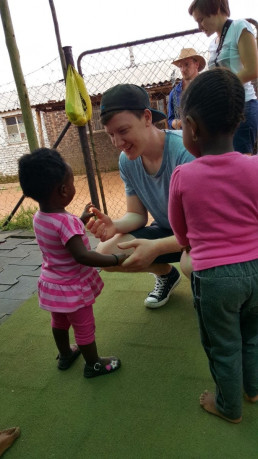
uvex is always keen to support projects like this, although the focus is not on the students simply having a good time, but rather on encouraging their personal and linguistic development. Linguistic development is also a priority of the day-to-day training programme routine at uvex, where weekly English classes are provided for trainees. However, a trip abroad to learn and practice is something quite different: The trainees have the chance to expand their horizons, in order to become accustomed to specific challenges which may arise in the future. In this regard, students from various classes at the Ludwig-Erhard state vocational school were given the task before their trip, to prepare a project centred on a subject connected to the European Union. Together with teachers and school leadership team, a decision was made to cover the current refugee crisis. The project was the result of a group effort requiring several meetings in the run up to the trip. It was then presented to campus managers of the six colleges in South Africa. As South Africa is also being affected by a refugee problem, there was an open forum for discussion after the presentation, which was of benefit to both sides.
Thre trip
The Apartheid museum, which shed light on the oppressive nature of South Africa’s past, was first up on the itinerary. The students also saw the township of Soweto (South-West township), which is one of the many slum areas in South Africa. Soweto was not the only township on the itinerary, but was without doubt the most meaningful: It was here that Nelson Mandela grew up, who to this day is still a role model for so many South Africans.
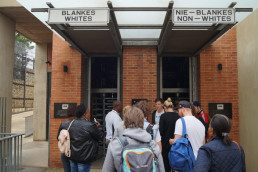
In addition to history and the educational system, the German visitors also became acquainted with the landscape and the people of South Africa: In the colleges, they got to know South African students, showing how differently their peers can think on certain subjects, despite sharing many interests – one common denominator was quickly found in the shape of the Top Gear, the British car TV programme. A six day excursion to Krüger National Park presented South Africa’s landscape in all its glory – including the impressive array of safari wildlife, where the students came face to face with the “big five”.
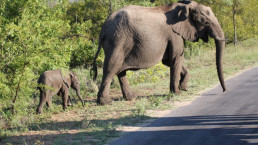
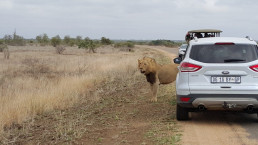
Trip summary
The uvex group is active globally, which naturally presents opportunities for employees to spend time abroad. In living with host families in the vicinity of the capital city of Pretoria, Jan Gratzfeld was able to experience this first-hand: “It was not just the financial support from uvex which I appreciated, but also the chance to see whether I might like to live and work abroad in the future.
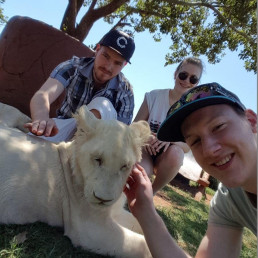
The experience is one which the second-year trainee is not likely to forget in a hurry: “It was a great experience for me to discover a different culture. The completely different ideology and world views I encountered, not to mention the different ethical attitudes, really made an impression on me as well. In a country where people speak eleven different languages and whose culture is to some extent not at all comparable with Germany, there is nevertheless some common ground. That really surprised me.” And who knows? Maybe Jan Graztfeld’s career path will take him to uvex’s South African subsidiary at some point in the future – the foundations for just this have now certainly been laid.
